
On March 21, 2025, SAEDI Consulting (Barbados) Inc. and the Society of Gender Professionals (SGP) co-hosted a hybrid event at NGO CSW69 titled "Countering Anti-Gender Movements: Intersectional Solutions for Gender Equity", drawing over 150 active global participants. Held both in-person at the Salvation Army in New York and online, the session featured panelists from diverse regions and fields who tackled the growing political and social influence of anti-gender movements. The discussion spotlighted their impact on Sexual Orientation, Gender Identity, Gender Expression, and/or Sex Characteristics (SOGIESC) rights, climate justice, and labor, and highlighted feminist strategies for resistance, from grassroots to institutional levels. Key messages emphasized the need for youth engagement, Global South leadership, evidence-based advocacy, and genuine partnerships with marginalized communities to advance gender equity under the Beijing+30 and 2030 agendas.


The research report titled "Understanding barriers to women’s participation in the UN climate negotiations: perspectives from the least developed countries" was released by the International Institute for Environment and Development (IIED), in collaboration with SAEDI Consulting. It examines the barriers limiting women’s participation in UN climate negotiations, particularly within Least Developed Countries (LDCs). The research, led by our Managing Director Leisa Perch, Project Manager Kwasi Pierre, and Research Associate Jacqueline Massiah-Simeon, working closely with the IIED team - including co-authors Tracy C. Kajumba, María Fernanda Alcobé and Elaine Harty - and an Advisory Group, highlights the roles of financial constraints, cultural norms, and systemic biases, while spotlighting promising national efforts in Mozambique, Rwanda, and Sierra Leone to strengthen gender parity. The report calls for enhanced policies, funding, training, and support systems to create a more inclusive and effective climate negotiation process. Read it here: https://www.iied.org/22603iied
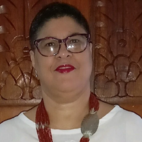

BATRAS, supported by the Food and Agriculture Organisation (FAO) and to be executed by the Barbados Agricultural Development and Marketing Corporation (BADMC), aims to enhance the resilience of Barbados’ agricultural sector to climate change while promoting gender-sensitive, low-emission practices. As part of the project development, our Managing Director Leisa Perch was contracted as the Gender Expert. With support from the SAEDI team, a Gender Analysis was conducted and a project-specific Gender Action Plan was developed. Ms. Perch also conducted field visits and led detailed stakeholder consultations with 49 farmers across Barbados.


CSIDS SOILCARE Phase II is a regional project funded by the Global Environment Facility (GEF) and is being implemented by the Food and Agriculture Organisation (FAO) and executed by the Partnership Initiative for Sustainable Land Management (PISLM). It aims to strengthen CSIDS with the necessary tools to adopt and implement measures, policies, and legal and institutional frameworks to achieve Land Degradation Neutrality (LDN) and Climate Resilience. As part of project preparation, Roberts Caribbean Ltd. - Environmental and Development Consulting Firm, Ms. Dianne Roberts contracted the SAEDI Consulting team, led by Managing Director Leisa Perch as the Gender, Environmental, and Social Specialist. SAEDI supported the gender assessment, gender action plan, Environmental and Social Safeguards (ESS) screening for the project and provided inputs to the Stakeholder Engagement Plan (SEP). Read more about the project here: https://www.thegef.org/projects-operations/projects/11390
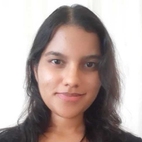

The WSRN S-Barbados project is funded by the Green Climate Fund (GCF) and executed by the Barbados Water Authority (BWA) with oversight from the Caribbean Community Climate Change Centre (CCCCC). SAEDI Consulting was contracted to perform the WSRN-S Gender Audit, to develop a baseline for measuring gender mainstreaming progress for a project under CCCCC’s implementation. The audit explored a number of issues of gender-based performance for climate projects. We are excited about the potential of this in supporting other national and regional projects.
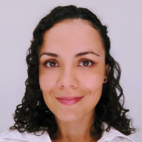

Toward Risk-Aware and Climate-resilienT communities (TRACT) - Strengthening climate services and impact-based multi-hazard early warning in Maldives is being executed by the Ministry of Tourism and Environment (MTE), Republic of Maldives and the United Nations Environment Programme (UNEP), with funding from the Green Climate Fund (GCF). It aims to protect the Maldives from climate threats and will contribute to GCF’s support of the Early Warning Systems for All initiative. Ms. Perch was contracted by the UNEP as the project's Gender Specialist. With support from the SAEDI Consulting team, key activities were conducted including the development of a gender assessment and Gender Action Plan (GAP) and the provision of recommendations aligned with Gender Equality, Disability and Social Inclusion (GEDSI) perspectives. Learn more about the project here: https://www.greenclimate.fund/project/sap050.


The St. Kitts and Nevis Readiness Project (KNA-RS-005) led by the Government of St. Kitts and Nevis, in collaboration with the Caribbean Community Climate Change Centre (CCCCC) and the Green Climate Fund (GCF), focuses on the country's Nationally Determined Contributions (NDC). As part of its development, SAEDI Consulting was contracted to support gender mainstreaming efforts and actions through several deliverables including a gender assessment, gender action plan and a climate and gender awareness strategy.


The global "Implementing Sustainable Low and Non-Chemical Development in Small Island Developing States (ISLANDS)" programme is funded by the Global Environment Facility (GEF) and supports Small Island Developing States (SIDS), including those in the Caribbean, with managing chemicals and waste. It is implemented by the United Nations Environment Programme (UNEP) and the Food and Agriculture Organisation (FAO), and executed by BCRC Caribbean. The SAEDI Consulting team was contracted by Fiona Pompey-Handl and Associates to perform the socioeconomic and vulnerable group analysis for 12 Caribbean SIDS including Cuba and the Dominican Republic. Learn more about the project here: https://www.thegef.org/projects-operations/projects/10279 and https://www.bcrc-caribbean.org/wp-content/uploads/2022/08/ISLANDS-10279-10472-project-briefs.pdf.
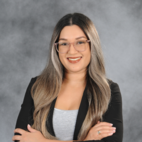

RSRI, implemented by DT Global for the Caribbean Development Bank (CDB), focuses on the road transport sector across 16 of the CDB's Borrowing Member Countries (BMCs) in the Caribbean. The project aims to integrate gender-sensitive climate change and disaster resilience measures into the sector. SAEDI Consulting executed the gender and social assessment of the road infrastructure to assess climate change resilience in the BMCs. We also performed a field mission in each country and conducted an in-country workshop with key governmental stakeholders to validate the findings of the country workbooks. The project has strengthened the capacity of CDB Borrowing Member Countries to provide road infrastructure that is more resilient to natural hazards and climate change impacts while ensuring that they are also accessible to vulnerable groups such as persons with disabilities, children, youth, the elderly and the poor.
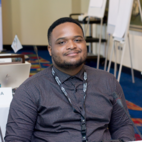

For an upcoming book developed by the University of the West Indies (UWI), SAEDI Consulting provided a chapter on the ‘Inequality of Risk’ in the context of climate change and natural hazards. The chapter was authored by Tanya Wragg-Morris and Leisa Perch, with graphics support from Junior Research Associate, Sai Sonali Anmolsingh.
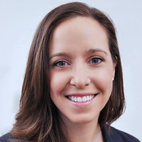

The Global Environment Facility (GEF) project, Biodiversity Conservation and Agro-ecological Land Restoration in Productive Landscapes of Trinidad and Tobago (BIOREACH), is being co-executed by the Environmental Management Authority (EMA) and NAMDEVCO. The project aims to promote the conservation of biodiversity, restore degraded lands and improve the livelihoods of rural communities involved in agriculture, forestry and other land uses throughout Trinidad and Tobago. Our Managing Director, Leisa Perch is contracted by the EMA as the Gender and Youth Specialist to develop and implement a Gender and Youth Action Plan (GYAP). As part of the consultancy and with support from the SAEDI Consulting team, the GYAP, along with other key deliverables were developed, including Gender-responsive Free, Prior and Informed Consent (FPIC) Guidelines to support project implementation. In-country missions in 2024 and 2025 were also part of this ongoing consultancy. Learn more about BIOREACH here: https://www.thegef.org/project...
